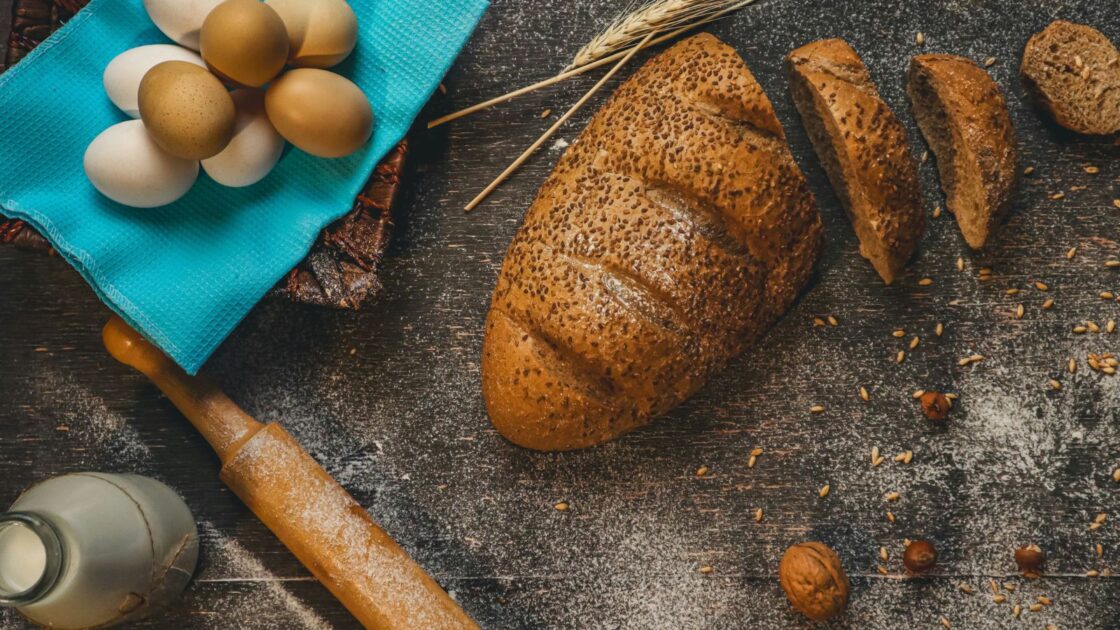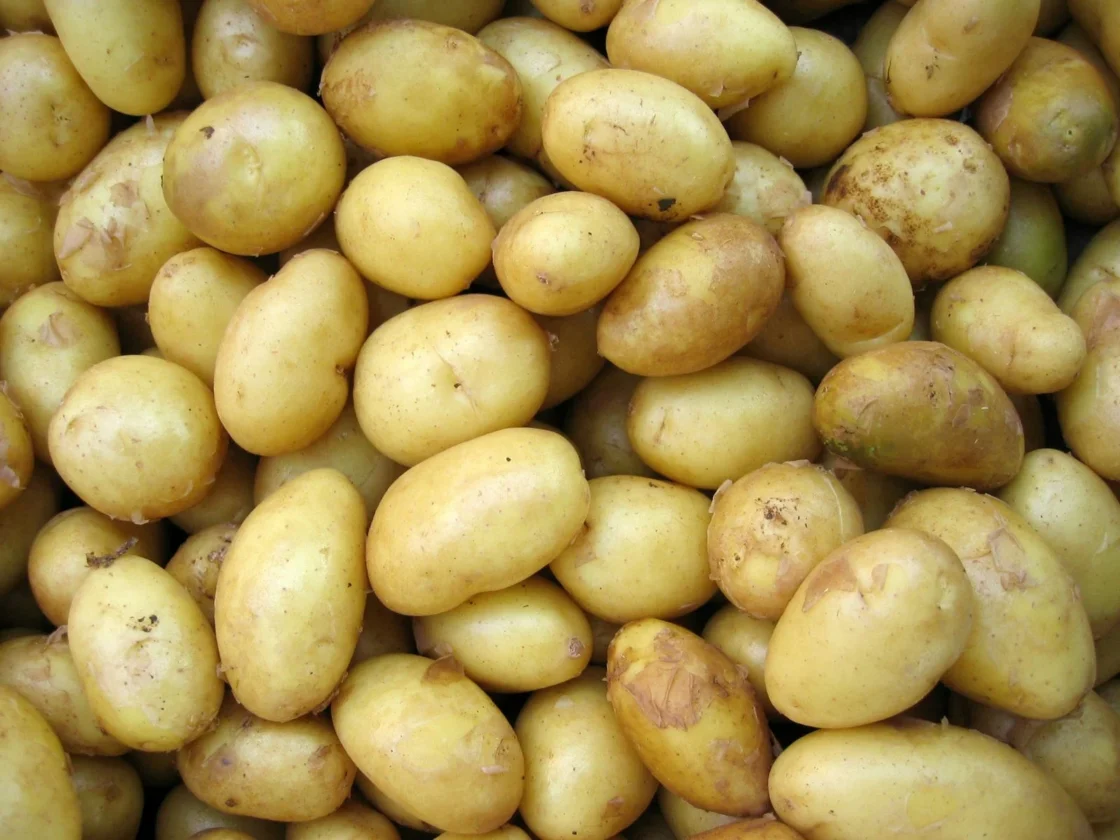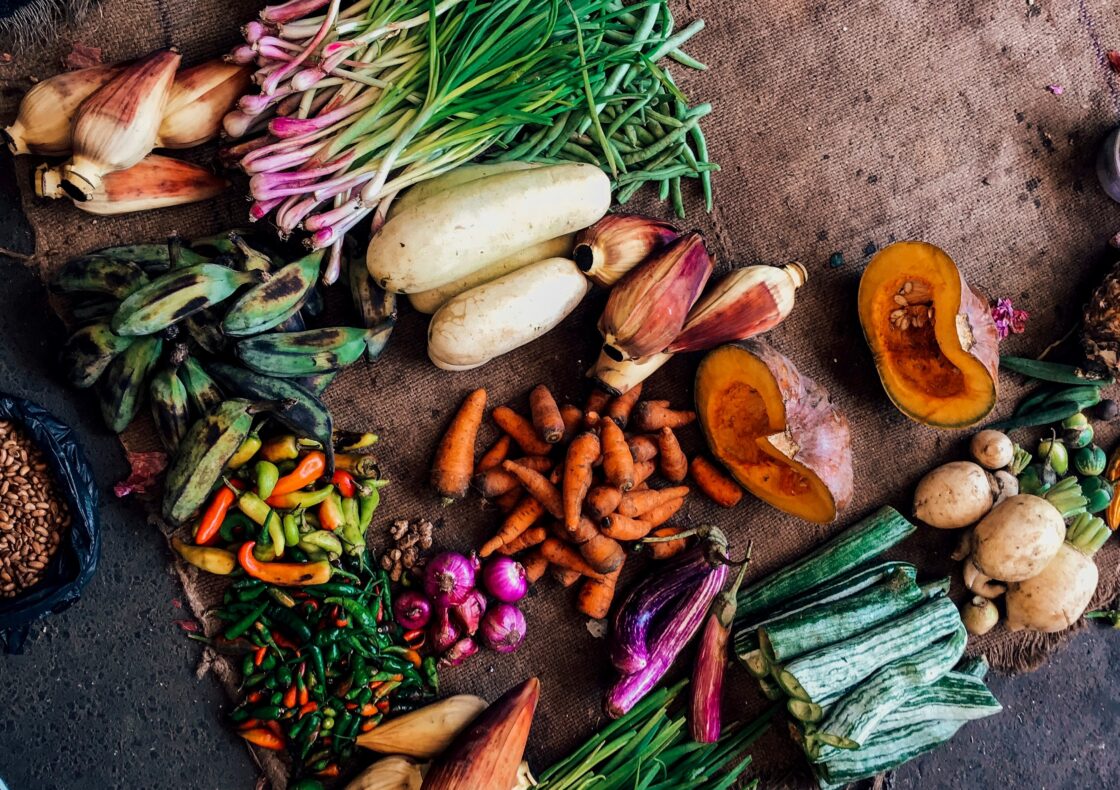13 Toxic Inflammatory Foods to Cut Out Now According to Functional Medicine Expert Amie Valpone

From Whole30 to Paleo to GAPS, elimination diets help people reduce general inflammation. Cutting back on toxic inflammatory foods can promote overall health and reduce the risk of heart disease1, diabetes, depression, and even cancer. But how can you know which inflammatory foods to cut from your diet? Functional medicine expert Amie Valpone, HHC AADP, provides answers.
Valpone, the best-selling author of Eating Clean: The 21-Day Plan to Detox, Fight Inflammation, and Reset Your Body, first encountered functional medicine after ten years of suffering chronic health issues from Lyme disease to PCOS to chronic candida to deadly C-diff colitis. After delving into research on the mind-body connection, Valpone has made huge strides in restoring her health — and she aims to share what she learned.
Here’s Why Chronic Inflammation is Bad for You
We’re all familiar with acute inflammation, like swelling around a cut or bruise. But while this sort of inflammation helps our bodies heal, most Americans are plagued by chronic inflammation, stemming from habitual or environmental factors we encounter every day such as stress and poor diet.
If you want to start feeling better without depriving yourself, here are 13 toxic inflammatory foods to eliminate for three weeks for a reset. After you’ve eliminated these foods and you want to add some back into your diet, add each one, one at a time, to see how you feel and if it’s a fit for your individual body’s needs.
“It’s not that eggs are bad,” says Valpone. “It’s not that dairy is bad. It’s just that in certain people, they’re highly inflammatory, because your immune system has been knocked out of whack by stress or toxins or whatever it may be, and you’ve got to remove that so that the body can heal, and then you can reintroduce it.”
Sign up for the newsletter to receive more wellness tips on reducing inflammation.
1. Gluten

It’s probably no surprise that gluten is on this list. While only about 1% of the population actually has Celiac disease, studies show2 that a different but related protein called amylase-trypsin inhibitors (ATIs) can cause inflammation even in people without Celiac.
Cutting out inflammatory foods with gluten (and amylase-trypsin inhibitors) not only means cutting bread, pasta, and beer from your diet but also some processed foods including soy sauce. Be sure to read labels carefully to ensure that gluten isn’t sneaking its way onto your plate.
2. Dairy

Another inflammatory food is dairy, such as milk and cheese. Research3 has linked the consumption of dairy to the increased risk of certain types of cancer including breast cancer and prostate cancer.
In addition, pasteurizing milk converts lactose into beta-lactose, which can spike blood glucose levels; when glucose levels are elevated over a long period of time, this can lead to general inflammation and metabolic disease. Fermented dairy like yogurt tends to be less problematic, but Valpone recommends omitting it for at least three weeks before attempting to add it back into your diet.
3. Soy

Soy was a popular health food for years, but it turns out that it may not be the superfood we once thought it was. This includes inflammatory foods like tofu, soymilk, edamame, soy nuts, soy sprouts, and miso.
Not only is most soy produced in the U.S. genetically modified, but soy — especially unfermented soy — is linked to a number of health issues. The goitrogens in soy can interfere with thyroid health, and studies have linked soy’s phytoestrogens4 to disrupted endocrine function. If you’re going to eat fresh soy products, always choose organic and consume in moderation.
4. Corn

Corn has long been a staple food but it can also be inflammatory, given its high sugar content. When corn was consumed amongst indigenous communities, it was soaked in lye first; this process, known as nixtamalization, makes the B vitamin niacin and other nutrients more available for assimilation.
While nixtamalized corn is more nutritious than plain corn on the cob, for the purposes of Valpone’s 21-day reset, you’ll want to abandon all corn5, including corn syrup and corn starch.
5. Caffeine

The data surrounding caffeine and inflammation is very mixed. While quite a few studies have actually linked coffee to anti-inflammatory benefits that reduce the risk of diabetes and lung disease, there is still a lot we don’t know about caffeine.
Caffeine can have various effects on those with chronic diseases. For instance, caffeine can increase heart rate and blood pressure or disrupt sleeping habits, which could aggravate certain health conditions even more6.
6. Eggs

Eggs, like caffeine, can be anti-inflammatory for some and inflammatory for others. According to a 2019 study7, the effects of egg consumption can vary depending on whether the person eating them is healthy, overweight, has metabolic syndrome, or diabetes.
Valpone herself notes that she had to cut out eggs for a period of time before being able to add them back to her diet. “After I’d healed my body and healed my gut, I eat three eggs a day,” she says.
7. Refined Sugar

Not only does refined sugar spike blood glucose levels but it also has no added nutrients or benefits whatsoever. Several studies, including one from 2022, show that a high-sugar diet can lead to inflammation8, along with increased gut permeability and obesity. Sugar substitutes like maple syrup, stevia, honey, and erythritol should also be cut out to help you feel better.
8. Alcohol

Alcohol is number eight on Valpone’s inflammatory food list, but it may as well be number one when it comes to anti-inflammatory protocols. Not only does most alcohol contain gluten (there are a few gluten free options), but it is also metabolized by the body as sugar. A 2010 study in the World Journal of Gastroenterology reports that “the key inducer” of inflammation, lipopolysaccharide, is “significantly” increased by alcohol.
Not only can it cause chronic inflammation, but heavy alcohol use can do serious damage to your organs starting with gut and liver function.
9. Shellfish

Seafoods including fatty fish are often touted for their health benefits, but shellfish, like shrimp, lobster, and crab, do not hold the same qualities. One study9 found that higher intakes of shellfish led to developing gout, a form of arthritis characterized by inflammation of the joints due to a buildup of uric acid.
Valpone also notes that much shellfish sold in the United States has been contaminated with heavy metals and should thus be avoided.
10. Peanuts

Not only are peanuts one of the most common food allergens in the United States, but peanuts can contribute to inflammatory processes even for those who are not allergic. This is due, in part, to an imbalance in the ratio of omega-6 and omega-3 fatty acids; peanuts are high in inflammatory omega-6 and low in anti-inflammatory omega-3.
Peanuts also have naturally occurring molds that develop on this groundnut known as aflatoxins — which are commonly found on peanuts and can contribute to inflammation.
11. White Potatoes

White potatoes are a member of the nightshade family, along with eggplant and tomatoes. Valpone does not exclude all nightshades for her 21-day reset, though she notes they can be problematic for some.
Potatoes, however, get the ax — and not because they are nightshades. Due to their starchy nature, white potatoes have a very high glycemic index, which means that consuming them regularly can lead to chronic inflammation. For this reset, this means getting rid of potato flour and potato starch too.
12. White Flour (Even Gluten-Free)

One of the toxic inflammatory foods Valpone restricts is white flour — including gluten-free flour such as white rice flour, coconut flour, and almond flour. This is because the naturally occurring fats in the base ingredients have been stripped away, leaving only residue that, according to Body Ecology, can “inflame the lining of the gut and contribute to constipation.”
“All white floors turn to sugar in the body, so they are highly inflammatory,” says Valpone. “It’s like sawdust!”
13. Canned Food

This last item on the list restricts you to whole foods — a choice that was made for several reasons.
Firstly, packaged and processed foods can contain a myriad of ingredients ranging from additives to preservatives to hidden sugars. By staying away from packaged foods, you also stay away from these problematic ingredients. But for some people, staying away from canned food may have more to do with the can itself than the processing.
“If you’re dealing with eczema, arthritis, auto-immune disease… you’re cutting out everything,” explains Valpone. “The metals from the can leach into the food, so it doesn’t matter if it’s BPA-free or not, you’re still going to be consuming heavy metals.”
What to Do After You Eliminate These 13 Toxic Inflammatory Foods

After the three weeks of reset, you can begin adding some of the inflammatory foods back into your diet to find out which — if any — are still problematic.
“It’s not that eggs are bad,” says Valpone. “It’s not that dairy is bad. It’s just that in certain people, they’re highly inflammatory, because your immune system has been knocked out of whack by stress or toxins or whatever it may be, and you’ve got to remove that so that the body can heal, and then you can reintroduce it.”
It’s all about listening to your body. Once you learn which ones are causing issues for you, you can learn to control your overall health and wellness.
Read More on Organic Authority

- Do You Need an Elimination Diet?
- 5 Steps to Reducing Inflammation in Your Diet
- 7 Ways to Add Creaminess to Any Recipe Without Dairy (Goodbye, Inflammation!)
- 3 Reasons the Ketogenic Diet Might Be the Ultimate Anti-Inflammatory, Cancer-Fighting Protocol
Sources:
- https://www.nhlbi.nih.gov/news/2020/anti-inflammatory-diets-may-reduce-risk-cardiovascular-disease
- https://www.ncbi.nlm.nih.gov/pmc/articles/PMC9363355/
- https://www.ncbi.nlm.nih.gov/pmc/articles/PMC6352799/
- https://www.ncbi.nlm.nih.gov/pmc/articles/PMC6408586/
- https://www.ncbi.nlm.nih.gov/pmc/articles/PMC8778110/
- https://pubmed.ncbi.nlm.nih.gov/17053540/
- https://pubmed.ncbi.nlm.nih.gov/31259415/
- https://www.ncbi.nlm.nih.gov/pmc/articles/PMC9471313/
- https://pubmed.ncbi.nlm.nih.gov/33527847/

